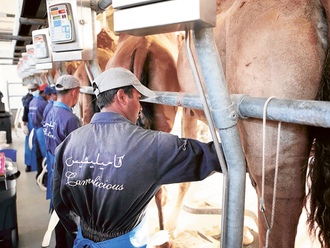
Listen to understand, not refute
By Lamiya Siraj
Staying quiet by listening attentively to the person talking is crucial because if we keep interrupting them, we won’t be able to understand the other person. To become a good listener we need patience and practice. A good listener is the key for building a strong relationship and for learning new information.
A good listener, gets involved in the conversation by sharing his thoughts on a topic, while listening to the inputs of others. We normally have the tendency to interrupt people when they talk. We don’t listen to understand, we listen to reply! We can have better communication by listening and paying attention to the speaker. We need to be attentive. In our day to day life, we have many conversations with different people. We talk to friends, family, relatives, and colleagues at work, strangers and more. When having such conversations, it is easy to lose one’s patience and we lose track of what the other person is saying.
This happens a lot when talking to children. We as elders listen to respond. We form opinions in the middle of the conversation itself, and shoot our comments. We seldom wait for our children to finish their thought and sometimes this happens when we are dealing with adults too. Is this the right way to communicate with others? It’s frustrating when we talk to a person, only to have them interrupt us. It is normal for us to feel irritated, however, this is a two-way street.
To become a good listener we need to learn not to be impatient. We must also learn not to be in a hurry to give our opinion. Rather, we need to take time to listen and understand. Be humble while responding to people. By doing so, more strong and positive relationships are built.
It is important not to be judgemental. Conclusions should not be made in between the conversation. If you want to add something, it would make sense to make a mental note of the point and raise it when the person is done sharing his or her idea.
Always maintain good body posture. Pay attention to this because if you don’t concentrate, you will soon find out that your mind is wandering.
Rather than focusing on right and wrong while listening, open your mind and try to think in terms of learning more. Consider each mind as a flower, which goes through its own cycles of growth, budding, bloom and decay. What is essential is that we come together as community and communicate.
- The reader is a writer based in Abu Dhabi.

Indians know how to recycle and resuse
By Chaya Mathew
We are all in the hopes of securing a liveable planet for future generations.
The Greta Thunberg effect is thundering. The Swedish climate change activist, at just 16, has managed to inspire millions of people to adapt greener ways to help sustain liveable conditions for the generations to come.
However, the idea of reusing, recycling and not wasting resources is not new to Indian middle-class families. My parents’ generation were true Greta Thunbergs in themselves. They lived on the principles of recycling just about everything.
Most Indians never throw away clothes, it gets retired only after it completes the duty of being the cleaning cloth or a duster. Food is also never wasted. Giving away used clothes to neighbours or younger siblings is something that has always been done. Most Indian households have recycled jars and use them for storing different items. You’ll find chili powder in a chocolate drink bottle and spices in a candy box.
Plastic bags or covers were a precious commodity and were neatly stacked up for future use. Milk cartons were collected and religiously sold to the municipality cleaners in India. Bottles eventually turned into vases and cloth bags or jute bags were always carried to collect vegetables from the market. The dustbins in Indian households were small and you would definitely get yelled at if you threw away a half-eaten fruit.

Rough notebooks were always made from previous years’ leftover pages, rubber bands were collected in jars for later use. There were a plenty of such hacks Indian families practiced to reduce expenses and save for the rainy days.
Now, everything seems confusing, present day families rarely showcase the concept of saying no to new collections, mostly consuming everything irrespective of whether it’s needed or not. One must make the Indian household, an example to reusing items and living sustainably.
- The reader is a resident of Dubai.

If I was a millionaire I would ...
By Prathima Palan
For the winner of the Abu Dhabi Big Ticket draw, you have got a wonderful opportunity to help others people. If I would have won millions in cash, I would have kept 40 per cent of the prize money for my family and friends. I would use 30 per cent of the money for a business. And the remaining amount I would use to help those in orphanages and old age homes.
I have always wanted to help people in such situations so I just might open an orphanage or an old age home myself. With the income I obtain from my business, I will use it to run the home I choose to make. This has been a dream of mine, and I would try and fulfill it if I had millions in my bank account.
Now you decide, what you would want to do with that much money. Because money is not all that matters. Finally, the satisfaction you get from helping those in need is what matters. Helping those less fortunate than us is one of the best ways one can give back to society. It is also one of the best ways to feel satisfied in life, to feel like you’ve made a difference.
Please think on it. I have all these dreams but I am unable to really help the people I want to. It still makes me upset. If you have the opportunity to do so then you should. If someone with a lot of money took some portion of it to help the needy, I’d feel my dreams of doing the same have been dreams accomplished.
- The reader is a resident of the UAE.








